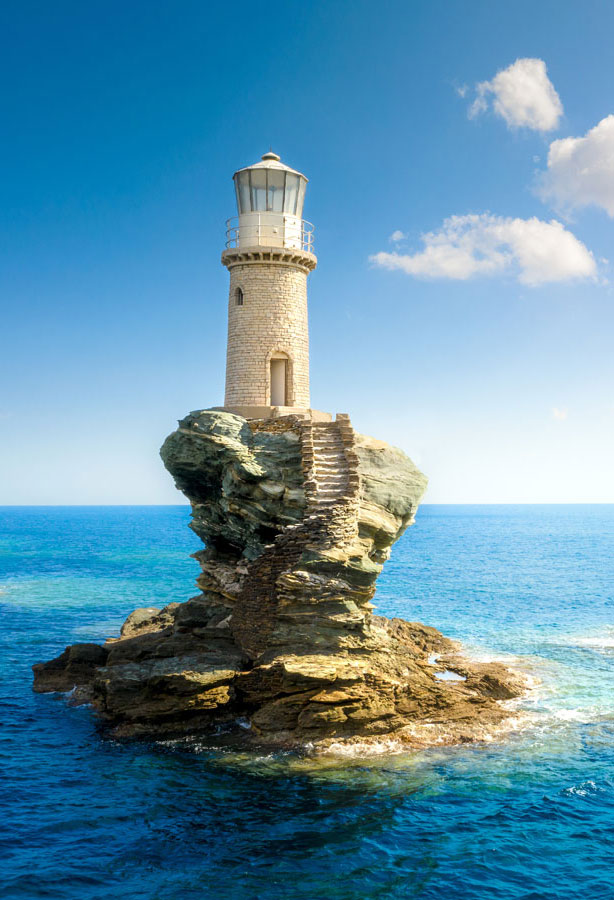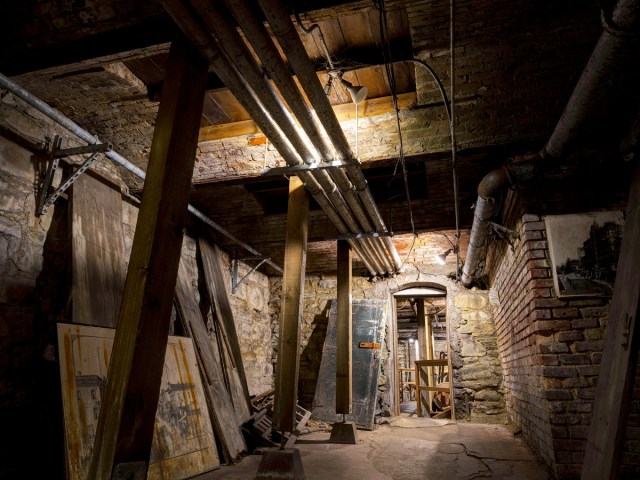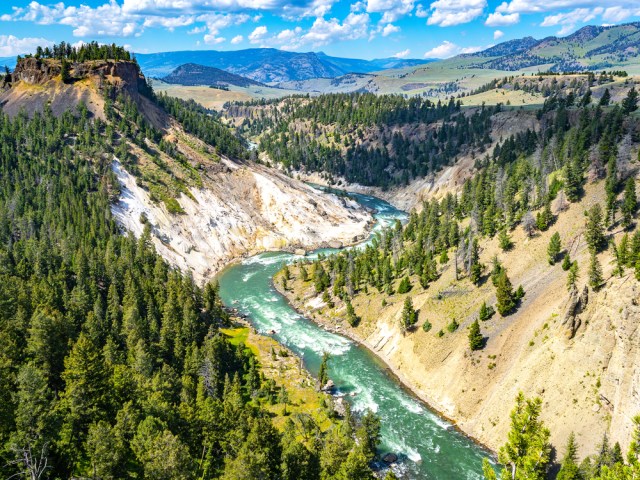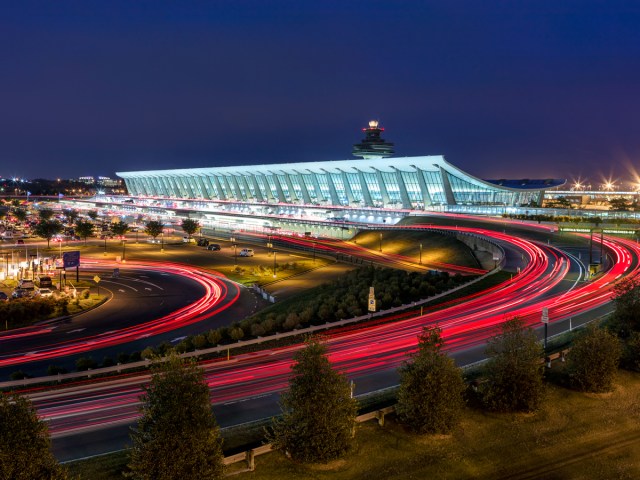Set against dramatic coastal backdrops, lighthouses cast a guiding light to steer ships through treacherous waters. They also hearken back to the romance of the past — reminding us of a time when sailing ships were used for travel, trade, and even battle. Perhaps that’s why many are so fascinated by lighthouses. Whether it’s the legends that surround them, their picturesque locales, or their innovative architecture, the following seven lighthouses around the world prove especially unique.
Les Eclaireurs Lighthouse – Argentina
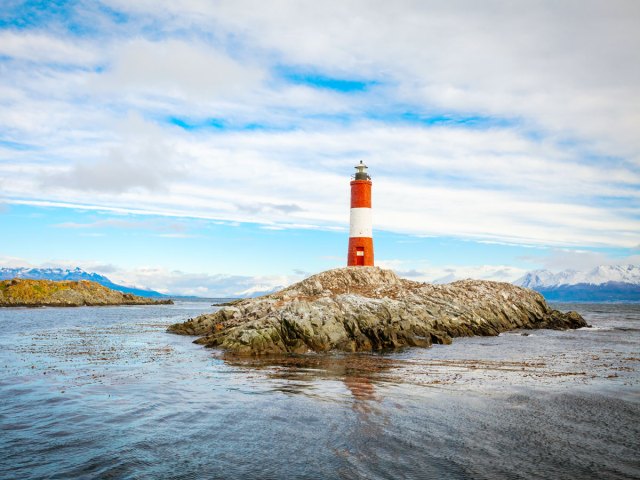
Nicknamed the “Lighthouse at the End of the World,” Les Eclaireurs is located at the southern tip of Argentina in the Tierra del Fuego archipelago. Located on an island five nautical miles off the mainland, near the town of Ushuaia, it guides ships in the Beagle Channel, one of the three navigable passages in South America that connect the Pacific and Atlantic Oceans. Since it opened in 1920, the lighthouse has operated without interruption, helping ships pass through the windswept channel with its beacon range of 7.5 nautical miles. Although the interior of the lighthouse is closed to the public, boat tours from Ushuaia provide ample photo opportunities of the exterior of the South American landmark.
Whitford Point Lighthouse – Wales
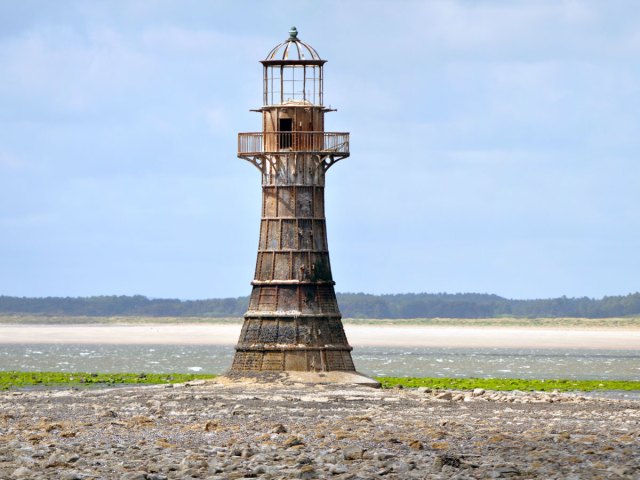
Dating back to 1865, Whitford Point Lighthouse features a unique sturdy design consisting of seven layers of cast-iron plates bolted together — which was necessary to help it survive nearly two centuries on the wind-battered coast of the Gower Peninsula in southern Wales. During the mid-19th century, the lighthouse keepers were stranded at the lighthouse during high tide, and could only access land when the tide was out. Today, Whitford Point remains inaccessible to visitors when the water is high, although they may walk to it after the tide recedes.
Tourlitis Lighthouse – Greece

Rising from the Aegean Sea on a magnificent spire, Tourlitis Lighthouse has stood in the Cyclades archipelago of Greece for over a century. It began operating on January 1, 1897, guiding ships with a light that remained visible for 11 nautical miles. For decades, the lighthouse played an important role in Greek shipping and contributed to the region’s prosperity. But it was sadly damaged during World War II, and the lighthouse was inoperational for 60 years. When the lighthouse was restored in 1994, it became the first automated lighthouse in Greece.
Kjeungskjær Lighthouse – Norway
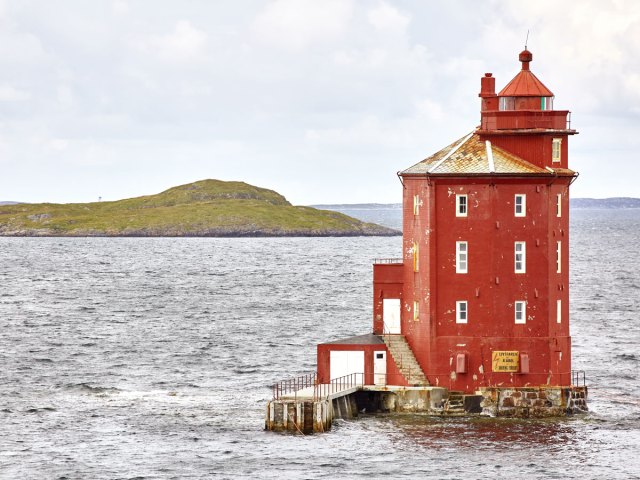
Perched on a small skerry, Norway’s Kjeungskjær Lighthouse guides vessels through a busy shipping channel, where Norway’s third-longest fjord meets the North Sea. Dating back to 1880, the lighthouse was constructed of stone and cast iron to protect it from unpredictable weather and consistently rough seas. Before the lighthouse became automated in the late 1980s, the lighthouse keeper resided full-time within its octagonal walls. A private school teacher also often lived in the lighthouse to provide lessons for the lighthouse keeper’s children. Today, Kjeungskjær is open to visitors, and the keeper’s former apartment is even available to rent for overnight stays.
Portland Head Light – Maine
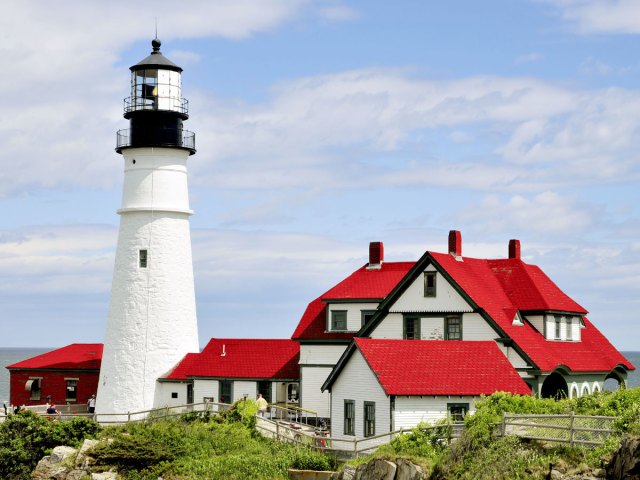
Commissioned by President George Washington, the Portland Head Light is Maine’s oldest and perhaps most iconic lighthouse. Situated on the rocky shores of Cape Elizabeth, the lighthouse ushers boats entering and departing Portland’s Casco Bay — and has done so since 1791. The lighthouse is set within the 90-acre Fort Williams, which features fort ruins, seaside walking trails, and an expansive wildflower garden. The lighthouse’s tower is open to visitors annually on September 14, Maine Open Lighthouse Day, but take caution — it is purportedly haunted by former lighthouse keepers.
Earhart Light – Howland Island, United States
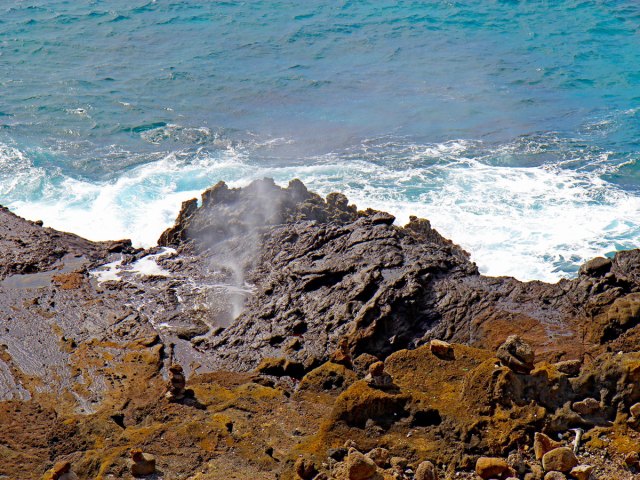
Part lighthouse, part memorial, Earhart Light is named for legendary female aviator Amelia Earhart. Located on Howland Island — a remote, unincorporated U.S. territory in the central Pacific — Earhart Light is technically not a lighthouse, since it has no nightly illumination. Still, the daytime beacon can be seen several miles into the surrounding sea. Howland Island was meant to be a fuel stop on Earhart’s infamous voyage around the world, though she sadly never arrived on its shores. It remains the site of the aviator’s last received radio transmission, with some historians asserting she may have crashed into the sea nearby.
Tower of Hercules Lighthouse – Spain
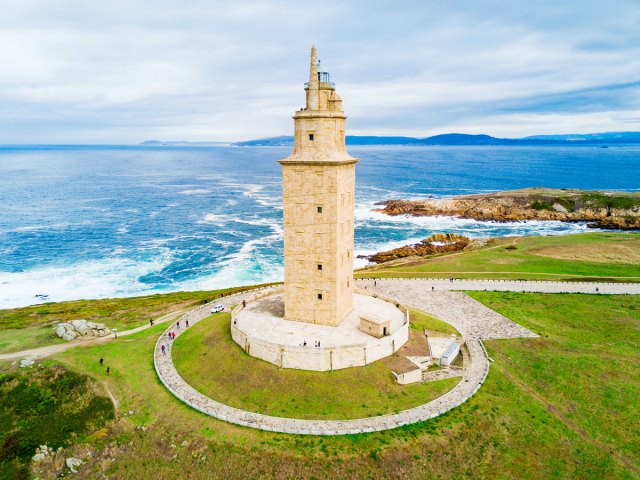
Considered the world’s oldest lighthouse, this ancient structure dates back thousands of years, but its exact origins remain unknown. Historians agree, however, that the Romans rebuilt the Tower of Hercules sometime around the first or second centuries CE to help guide ships to and from port in what is now northwestern Spain. Despite its practical use, the ancient tower is surrounded by myth and legend. One such legend regales the tower’s eponymous hero, Hercules, arriving by ship to bury the head of a giant slain in battle. Others link the tower to the legend of Breogan, a Celtic chieftain who could spot his homeland of Ireland from the tower’s summit. To see if the legend rings true, the lighthouse remains open to visitors, who may wish to climb the 230 steps to the top for a stunning view over the Atlantic coast.






